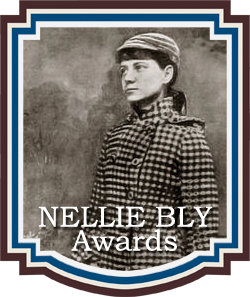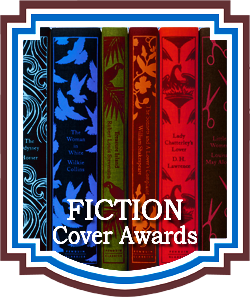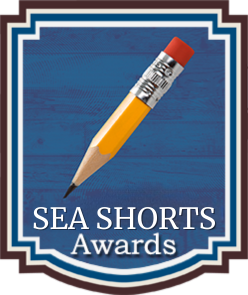|
Listen to or download this article:
|

Let me introduce you to J.I. Rogers, one of our favorite authors here at Chanticleer Reviews!
In 2019, J.I. Rogers was awarded the 2018 GRAND PRIZE in the Chanticleer International Book Awards for CYNUS – our Science-Fiction Division for her Space Opera, The Korpes Files, a cyber-punk sci-fi, dystopian space opera, and nothing has been the same since.
We asked J.I. Rogers to take part in our 10-Question Author Interview series to share with us her journey of becoming a CYGNUS Grand Prize winner.
Chanticleer: Tell us a little about yourself, how did you start writing?
Rogers: Well, the biography on my website starts off like this: I am a green-eyed, ginger-haired, caffeine addict who is currently working on The Korpes File Series.
When not acting as a conduit for the voices in my head or pursuing something artistic, I’m a poster child for Generation X and the Queen of most boondoggles that lead to eye-strain and tinnitus.
Ancient History: I’ve always had a love of science fiction, mythological, and fantasy themes. I attended Emily Carr Institute of Art and Design back in the 80s, studying film animation when it was still a college, and I have been working as a professional artist for over thirty years. My love of writing dates back just as far as my artistic ventures. I even had a small Fantasy APA/Fanzine called “Northwest Passages.”
Recent History: The Korpes File Series is my first foray into writing science fiction. The core concept for the series came to me thirty years ago, and it was then that I began the process of world-building. In that time the idea behind my series has shifted from being hard science fiction to space opera, to finally come to rest in the middle as a hybrid between dystopian and science fiction.
How did I start writing? In 2012, I was working as a concept wrangler for a couple of game design studios and was put in charge of world development for one of the projects. I wrote two cut-scenes based on situations that the players would encounter as an experiment. When that project concluded, the short stories were released back to me, and the encouragement I received was what prompted me to continue writing. I decided to expand on what I’d created and that’s when the Muse struck. NaNoWriMo followed a week later, and at the end of that November I had enough core material to know where I was going with my story.
Chanticleer: Rock on #NaNoWriMo! When did you realize that you were an author?
Rogers: Honestly? The first time it sank in was when someone had purchased a paperback copy of The Korpes File then traveled to meet me and asked if I would sign it.


Chanti: That always feels good, right? And now, you have the second in series! Please tell us more about the genre shifts that your work has made and what led you to write in this genre?
Rogers: The closest definition I could come up with for The Korpes File Series would be that it’s a blend of dystopian and science fiction elements. As I said earlier, the series began as hardcore science fiction then transitioned to Space Opera and then into what is now dystopian with science fiction elements with a healthy dollop of space opera mixed in as well. I’m a fan of character-driven plot. What led me to write in this genre? My Muse kept sending me love notes in the form of characters quotes and world-building concepts.
Chanti: I love it when that happens. Do you find yourself following the rules or do you like to make up your own rules?
Rogers: Life rules? I’m unconventional, but I’ve managed to get away with things thus far by waving the ‘eccentric artist’ banner over my head. In writing? I follow the rules in non-dialogue portions of my writing, mostly (I do use Oxford commas, adjectives, and past tense when appropriate). The only place you’ll see me play fast and loose is in dialogue; this flexibility allows characters to sound unique.

Nash’s glasses
Chanti: How do you come up with your ideas for a story?
Rogers: I find inspiration via many portals. I’ve discovered that downtempo psy-bient electronica, industrial, and angsty bands from the late 90s and early 2000s inspire my dystopian Muse. My Pinterest folder is bursting with images on everything from flora and fauna to human culture, science, geology, tech, space… You get the idea. I also save links to new and emerging technology there. Even the characters in my story have suggested elements to me… when they go off-road.
(Chanti: I think Pyewacket and Tannith have to take some credit here, too, don’t you?!)

Chanti: Name five of your favorite authors and describe how they influence your work.
Rogers: My list is eclectic and includes artists: Jaime Hernandez – I’ve been a fan of Jaime for over thirty years. He and his brothers have demonstrated time and time again that you can tell a provocative, epic story with dimensional characters using both words and images. Love & Rockets is a masterpiece and I aspire to create something as beautiful.

Winner of the 2014 LA Times Book Prize! Image from the Publisher.
Barbara Hambly – While her storylines are great it was Barbara’s characters that spoke to me, and they grounded me into every event in the plot. I have re-read certain books just to re-experience these ‘old friends.’ When I finally decided to write, I made a point of finding the personality touchstones in all of my protagonists and antagonists.
Neil Gaiman – There’s a definite ‘other-worldly’ quality to his work; it’s like he exists somewhere between here and the twilight realm of Faerie and can translate that experience back. While I was designing aspects of Tamyrh and the aliens that hide in plain sight, I reflected on Mr. Gaiman’s “Sandman” series and allowed the ambiance to run its course.
James S.A. Corey – He recently displaced my favorite go-to for science fiction for the simple reason that he’s created a modern dystopian sci-fi epic that hasn’t fallen into the usual pitfalls of mocking itself or weighing itself down with unnecessary angst. If I want to escape my world but stay in the mood to write, I read Mr. Corey’s work or catch an episode of “The Expanse.” I don’t know if I’d call him an influence, rather a reminder that dystopian sci-fi can be done well.
Philip K. Dick – Our styles are different, but we definitely gravitate toward the same themes; his work lit a fire under my Muse back in high school. I’d like to add something about film here. I read Do Androids Dream of Electric Sheep before I saw the film Blade Runner, but the latter was what firmly cemented the love of noir, dystopian sci-fi in my soul. It was one of the first sci-fi films I’d seen that didn’t inject ‘comic relief buffoonery’ or ‘cute fuzzy creatures’ in order to expand its appeal. Alien, Logan’s Run, and 2001: A Space Odyssey are other fine examples that inspire.
Chanti: Give us your best marketing tips, what’s worked to sell more books, gain notoriety, and expand your literary footprint.
Rogers: Honestly, I haven’t reached the point where I’m selling millions of books; part of that may be due to my advertising budget, which is microscopic. This advice is aimed at those like me. I maintain an active presence on social media (the usual free ones – Facebook, Instagram, and Twitter) and I operate a Patreon page, where potential readers and fans can find out what I’m up to, ask me questions, get special offers and swag, etc. My Patreon page is now at the point where it covers my website fees as well as the production costs of book-related items like the limited-run character sketchbook.

I owe my modest notoriety as an author to the fantastic people who interact with me, both online and in real life. They have acted as my ‘street team’ and encouraged their friends to buy my books. I estimate that 70% of my sales are due to their efforts and I’m very grateful… now to find a way to get everyone to leave reviews too.
If you’re on a tight budget like me, my advice is:
- Share posts with other authors and leave comments
- Support your creative community
- Create engaging content
- Leave reviews
- Shamelessly promote others
- Chat with fans, and
- Be positive without looking for direct evidence of karmic return. In other words, treat people the way you’d like to be treated. This seems to be working for me.
- Also – treat your author time on social media like a job or it’ll become a time sink and you’ll not get any writing done.
Chanti: That’s great advice! What is the most important thing a reader can do for an author?
Rogers: I have two answers to this question.
A). If they enjoyed the book, then I’d encourage them to leave a review saying so. B) If they didn’t like the book, I’d ask that they offer some feedback via the author’s website. Simply saying it was bad isn’t helpful; no one improves without constructive criticism.
Chanti: Do you ever experience writers’ block? What do you do to overcome it?

“Emerging Words” (which is a 18″ x 24″ artwork made from a mold of my face, silk, and pages from the proof copy of The Korpes File).
Rogers: My writing Muse sometimes takes an impromptu vacation and leaves me home, staring at the screen. When that happens, I’ll swap over to another project – usually art. Right now, I’ve got two illustration commissions on the go as well as Patreon projects. If that fails, there’s always gardening or my secret vice… MMORPGs like World of Warcraft.
Chanti: I think dialogue is where it’s at as far as character development – for sure. What do you do when you’re not writing? Tells us a little about your hobbies.
Rogers: I think my hubby would argue that I’m always writing as my ‘office’ pins down territory around the house depending on my mood. I draw, paint, sculpt, and garden (weather dependent on that last one – we get a lot of snow in the winter).
Chanti: Thank you, J.I. Rogers, for sharing your author journey with us. I am looking forward to seeing you at the next Chanticleer Authors Conference.
J.I. Rogers invites you to visit her website at https://jirogers-author.com/
J. I. Rogers won the CYGNUS 2018 Grand Prize because The Korpes Files rock! And also, because she dared to enter the work into the CYGNUS division of the Chanticleer International Book Awards…
In other words, if you don’t enter, you will never know how your work stacks up against the other entries.
Who is going to win the 2019 CYGNUS Awards? You will have to check out the progress of the entrants as the judging rounds continue!
If you want a shot at the HONOR of CYGNUS SciFi Book Awards for 2020, don’t delay, enter the CYGNUS B00k Awards today!




The Cygnus Book Awards recognize emerging new talent and outstanding works in the genre of Science Fiction, Steampunk, Alternative History, and Speculative Fiction. The Cygnus Awards is a genre division of Chanticleer International Book Awards (The CIBAs).
Chanticleer International Book Awards is looking for the best books featuring space, time travel, life on other planets, parallel universes, alternate reality, and all the science, technology, major social or environmental changes of the future that author imaginations can dream up for the CYGNUS Book Awards division. Hard Science Fiction, Soft Science Fiction, Apocalyptic Fiction, Cyberpunk, Time Travel, Genetic Modification, Aliens, Super Humans, Interplanetary Travel, and Settlers on the Galactic Frontier, Dystopian, our judges from across North America and the U.K. will put them to the test and choose the best among them.
Get your Sci-fi on
enter the CYGNUS AWARDS today!

Don’t delay. Enter today!
Chanticleer Book Reviews & Media, L.L.C. retains the right to not declare “default winners.” Winning works are decided upon merit only. Please visit our Contest Details page for more information about our writing contest guidelines.
CBR’s rigorous writing competition standards are why literary agencies seek out our winning manuscripts and self-published novels. Our high standards are also why our reviews are trusted among booksellers and book distributors.
Please do not hesitate to contact Info@ChantiReviews.com about any questions, concerns, or suggestions about the Chanticleer International Book Awards. Your input and suggestions are important to us.
Click here for more information about the Chanticleer Book Reviews International Book Awards.









Leave A Comment